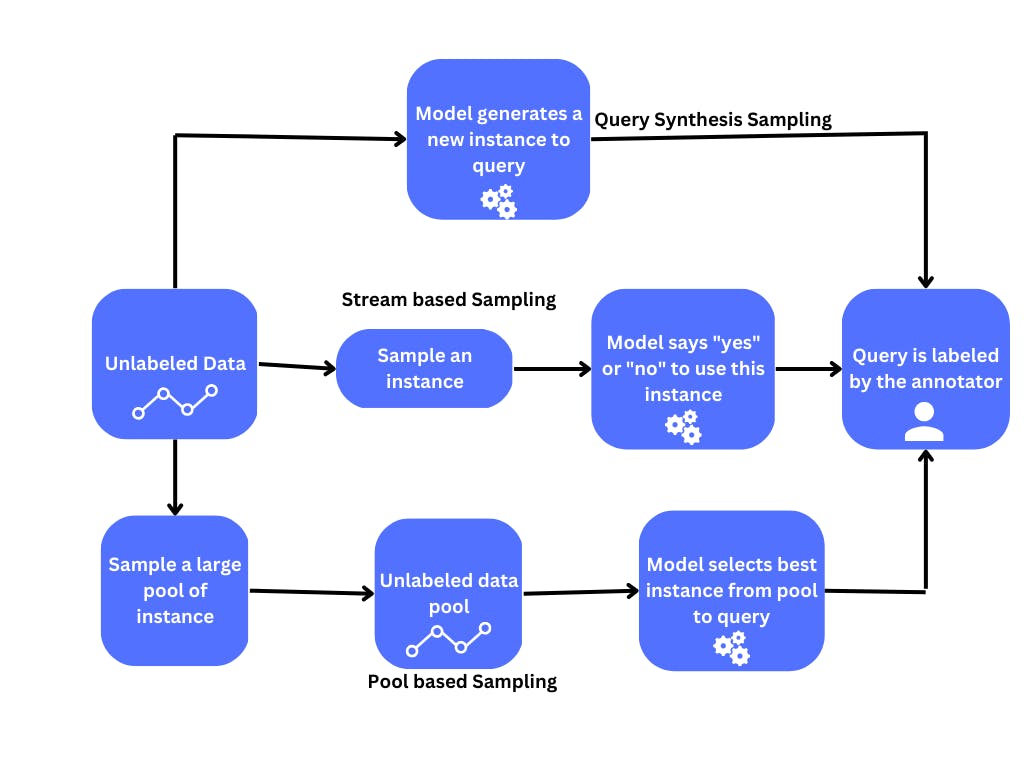Query Strategy
Encord Computer Vision Glossary
Query strategies in active learning refer to methods used to select informative samples to be labeled by a human annotator, with the goal of improving the model's accuracy. These strategies aim to select the most informative examples while minimizing the total number of samples required for labeling, thus reducing the labeling cost.

Some common query strategies include stream-based sampling, pool-based sampling, and query synthesis methods. In query synthesis methods, the model generates synthetic samples for the annotator to label. Stream-based selective sampling is a strategy used when the data is generated in a continuous stream, such as in online or real-time data analysis. In pool-based sampling, the query strategy selects a large pool of unlabeled samples and the model selects the most informative examples from this pool to be labeled by an expert or an annotator.

Why are Query Strategies Important in Active Learning?
Query strategies are particularly important in active learning because they determine the selection of data points to be labeled or annotated, thereby influencing the learning process of a machine learning model. Here are some key reasons why query strategies play a crucial role in active learning:
- Efficient Data Annotation: Active learning aims to minimize the amount of labeled data needed to train a model by selectively choosing the most informative or uncertain samples for annotation. Query strategies help identify such samples, reducing the annotation effort and cost associated with labeling a large amount of data.
- Improved Model Performance: By selecting the most informative data points for labeling, query strategies allow the model to focus on areas of the data distribution that are challenging or uncertain. This leads to improved model performance as the labeled data becomes more representative of the underlying data distribution.
- Addressing Labeling Bias: Query strategies can help address labeling bias by actively seeking diverse or representative samples. By selecting a balanced set of samples from different regions of the data space, query strategies reduce the risk of model biases and ensure a more comprehensive understanding of the data.
- Active Exploration: Query strategies promote active exploration of the data space by prioritizing uncertain or informative samples. This allows the model to explore different regions, capture diverse patterns, and learn more effectively from the data.
- Optimized Resource Allocation: Active learning often involves limited resources, such as expert annotators or computational power. Query strategies help optimize the allocation of these resources by focusing on the most valuable or informative samples, making the annotation process more efficient and cost-effective.
